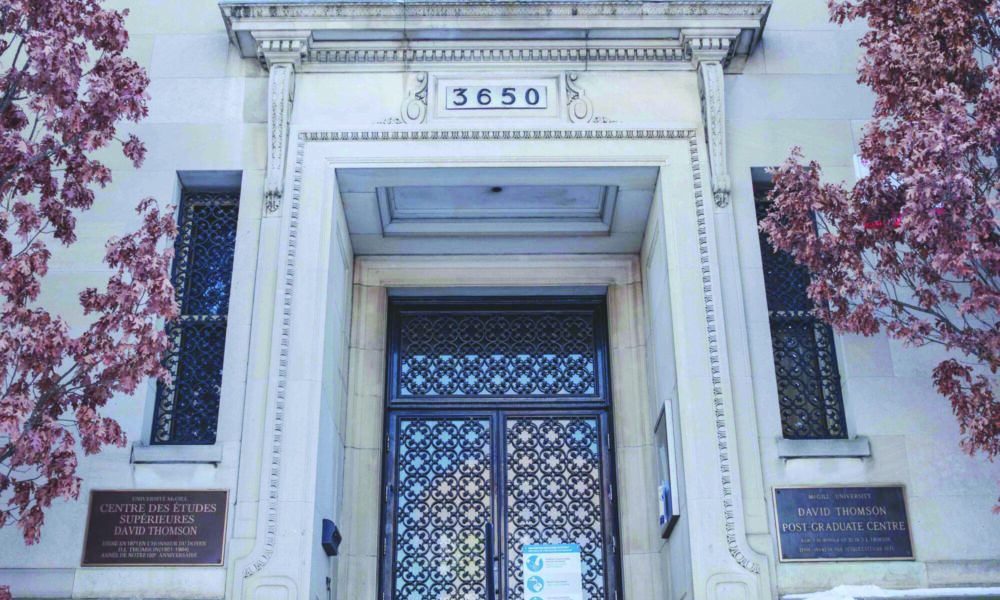The Post-Graduate Students’ Society (PGSS) held their second Council meeting of the 2022-23 academic year on Oct. 19 to amend their budget, update students on sustainability projects and invigilators’ rights, and discuss concerns surrounding accessibility and accommodations for graduate students. There was also a town hall portion of the evening attended by McGill’s Dean of Students Robin Beech.
During the town hall segment, Rine Vieth, a PhD candidate in Anthropology, pointed to their personal experience accessing accommodations from Student Accessibility and Achievement (SAA)—formerly the Office for Students with Disabilities (OSD)—as a graduate student. Vieth asked Beech about removing some of the SAA’s registration criteria.
“McGill does not need to medicalize accommodations. While the McGill line is that this is required or otherwise needed by law, that’s not really the case,” Vieth said. “McGill absolutely could make it a policy to accept accommodations without a particular doctor’s form.”
In response, Beech stated that there is ongoing discussion between him and Fabrice Labeau, Deputy Provost (Student Life and Learning), about extending the range of accommodations for students. Although they are not sure how, the McGill administration hopes to implement a “no questions asked” three-day accommodation for academic evaluations weighted at under 30 per cent once a semester.
Hayley Krieger, a master’s student at the Max Bell School of Public Policy, added to Vieth’s point about the need for greater accessibility accommodations. After contracting COVID-19 during the second week of classes, Krieger asked to attend classes over Zoom. She was told her program was not hybrid and that she could not join the class synchronously.
“Classes are recorded, but it feels wrong to put the burden on students who have to stay home and make up a week of lectures,” Krieger said. “The university should have policies advocating accommodations for students that get COVID-19 instead of leaving it up to individual programs and professors to decide.”
While explaining the administration’s lack of uniformly applicable policy, Beech asserted that attending through Zoom is not equivalent to being in class and, thus, is not an appropriate accommodation.
Following the town hall, the Association of Graduate Students Employed at McGill (AGSEM) took the floor to update students on their contract negotiations with McGill regarding invigilators’ wages. The union maintains that the wage should be set to $18 per hour, and is waiting for McGill to return with a satisfactory counter-proposal before signing a new collective agreement.
Kiersten van Vliet, mobilizing officer for the Invigilator Bargaining Committee of the AGSEM, noted that McGill invigilators are paid less than any others in Quebec, and significantly lower than those in other provinces. Van Vliet also said that AGSEM believes McGill is exploiting the position of international students who cannot legally be employed outside the University, and hopes to stop this with firm contract negotiations.
“Many, if not most, of the invigilators at McGill are international students, and these students often have visa requirements that restrict their ability to work off campus,” van Vliet said. “They also have to pay international student fees. This is one of the reasons why the union has been firm with our demand.”
To conclude the meeting, the Council approved motions to amend the PGSS budget, ratify interim conditional appointments, and condemn the New Vic project.
Moment of the Meeting:
The first 45 minutes of the meeting were subject to constant interruptions and disregard for procedural formats. In attempting to improperly add a motion to the agenda, one individual cut off fellow committee members and attempted to overrule the speaker’s decision to deny the motion’s addition.
Soundbite:
“I was told that there are no supports for students not taking coursework,” Vieth said. “[I am] a little taken aback by [the SAA] seeming to imply thesis-writing is not academic.”
— Rine Vieth, a PhD candidate in Anthropology, discussing the need to expand SAA accommodations for graduate students








